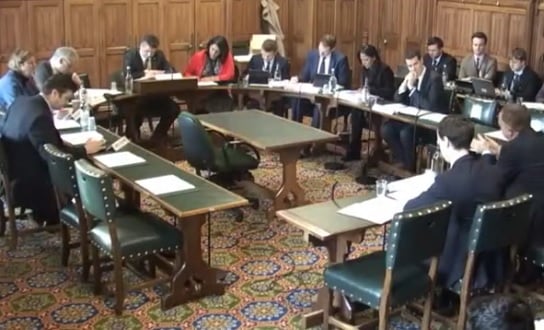
The Energy and Climate Change select committee is to be scrapped with the new BEIS committee to take on the energy brief.
The Energy and Climate Change (ECC) select committee is to be officially abolished following the conference season, with the business, innovation and skills (BIS) department to take on the energy brief.
Following the closure of the Department of Energy and Climate Change and the formation of the new Department for Business, Energy and Industrial Strategy (BEIS), official government documents have revealed that the scrutiny committees will be changed to reflect the new landscape.
According to the House of Commons Future Business papers for the week beginning 10 October, the standing order related to select committees will be amended to remove “Innovation and Skills” from the BIS select committee to be replaced by “Energy and Industrial Strategy”.
This will take effect on 17 October, when the ECC committee will be dissolved. These changes will also reflect the removal of climate change from a named government department, with the new BEIS committee presumably taking over scrutiny of this area in addition to the named briefs.
There has been no word yet on the likelihood of changes to the committee membership to reflect the new portfolio. However, with new committees being set up for the departments for exiting the European Union and international trade, a spokesperson for the ECC committee told SPP that some changes could occur naturally.
“I think what may happen even if it’s not been set out is that the membership might shift anyway because they’ll be new committees set up and obviously some members may want to stand in the elections for chairs so it may lead to some natural rotation,” he said.
While the efficacy of select committees has always been in question, particularly for the less high profile departments, the ECC committee has nonetheless provided fairly scathing coverage of the government’s energy policy.
This has been shown most recently by the committee’s conclusions that the UK will miss its 2020 renewable energy targets due to “government failure to cooperate effectively across departments”.
It is unclear what will happen to the committee’s ongoing inquiries, which include investigations into the implications of leaving the EU on climate change and energy policy.
This reflects the ongoing concerns over BEIS, which has yet to comment on the future of ongoing DECC consultations on the Renewable Heat Incentive; exemptions for energy intensive industries from the indirect costs of the Renewables Obligation and Feed-in Tariff schemes; the next Energy Company Obligation, or Help to Heat, scheme; and a second consultation of reforms to business energy efficiency taxation.
The incorporation of energy and climate change policy scrutiny into the larger brief of business and industrial strategy is likely to cause serious concern within industry, according to ECC committee member James Heappey.
Speaking at an event in July, the conservative MP for Wells said: “Even though the BIS committee will have lost apprenticeships and skills and will have lost international trade from its existing portfolio, there is still a heck of a lot in business and industrial strategy that it means looking at energy will become something of an afterthought for commitment.
“I genuinely hope that's not the case because [there is] a real nervousness about [the industry] voice in Parliament being lost.”

